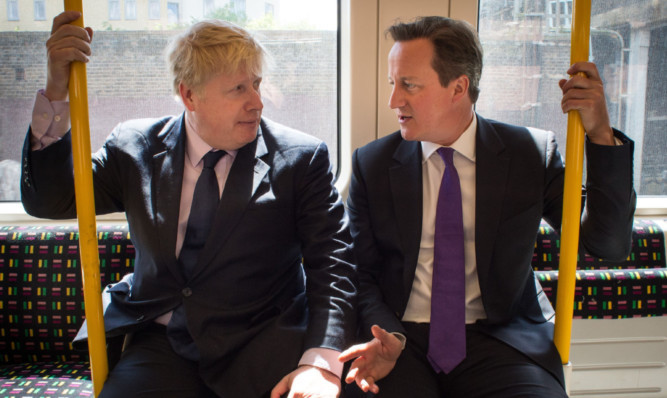Winston Churchill once said that if asked to choose between Europe and the sea then he would choose the sea.
David Cameron’s policy on Europe, in contrast, can at best be described as all at sea. The grand design he brought back from Brussels does not stand up to serious examination. On that point at least, the Euro-sceptics are right.
There cannot be a guarantee of any European Treaty change, just a promise that it will be addressed at some time in the future.
The commitment in favour of competitiveness is about as meaningful as a pledge against sin. Euro countries are not plotting to oppress non-Euro countries, therefore such a “non-aggression” guarantee seems to be of little moment. The old canard of “ever-closer union” has never been in the operational text of any European Treaty, just in the preamble of many.
Mr Cameron, therefore, may just have achieved the first ever opt out from something that does not as yet exist. The only tangible change is the freedom to restrict the benefits of other Europeans working in this country. In total, that amounts to some £30 million and sounds enormously complicated to operate.
No doubt the wall-to-wall coverage of the Prime Minister’s negotiating “success” will give a short-term boost to the In campaign. However, this carries with it a substantial danger. A campaign fought on such a flimsy platform will fail. And having spent so long banging on about nothing much in particular and pandering to every spasm of Euro-scepticism, it is no simple thing to change tack now and engage in the sort of soaring rhetoric that a truly positive campaign requires. The campaign to win the Euro vote has to be uplifting, upbeat and visionary.
A good example was when the Prime Minister marched out of Downing Street, between rain showers, on Saturday afternoon to announce the referendum day as June 23. He spent little time explaining his deal but instead declared that European membership was essential to the security and prosperity of the country.
I happen to largely agree with that, but how exactly can Mr Cameron make that claim given that he is on the record many times as saying that without concessions, he would have lined up with the Outers. The point is obvious.
Either something is essential to the security and prosperity of the country or it is not. If that is genuinely your opinion, it is not going to be altered by the minutiae of negotiations. If it is not, and European membership is conditional, as Mr Cameron previously indicated, then it’s difficult to backtrack now and claim it is fundamental to security and prosperity. Mr Cameron risks hoisting the rest of us on his personal petard.
Other dangers abound. Already Mr Cameron has lost the support of his best friend, Michael Gove, and that of his worst enemy, Boris Johnson. He has offended the First Ministers of Scotland, Wales and Northern Ireland. sweeping aside their advice to avoid an overlap between the Euro poll and their national elections.
This totally unnecessary slight betrays one of Mr Cameron’s greatest weaknesses. He won last year’s election with an overall majority but with only 37 per cent of the vote. To win a referendum, you require over 50 per cent.
With the Tory Party fundamentally divided, the referendum can only be won on the support of voters of other parties. Indeed, it is Labour, SNP, Plaid and Green Party supporters who will have to make up the majority of the “In” vote for Europe to prevail.
However, Mr Cameron has made no attempt whatsoever to court the support of Jeremy Corbyn of Labour, Nicola Sturgeon of Scotland or Carwyn Jones of Wales. He looks like the leader of the biggest faction of the Conservative Party, not the leader of the majority of the country. That may become a fatal weakness as this European campaign progresses.
The sort of campaign which could galvanise support focuses not on the negatives of Europe, and certainly not on Mr Cameron’s thin negotiating platform, but on what Europe could become with some positive, collective effort. Many people would rally behind a Europe that aimed to reignite the concept of a social Europe, which galvanised action on the environment, which looked for economic recovery across the continent and which acted with solidarity when faced with the greatest refugee crisis since the Second World War. That is a Europe worth voting for.
Mr Cameron is fond of telling his inner circle how he won the Scottish referendum. Perhaps so but in the process of the campaign the no vote fell from 72 per cent to 55 per cent while the yes vote moved from 28 per cent to 45 per cent. The Prime Minister simply cannot afford to lose 17 per cent of the vote in this referendum otherwise the UK is out of Europe and he is out of Downing Street.
